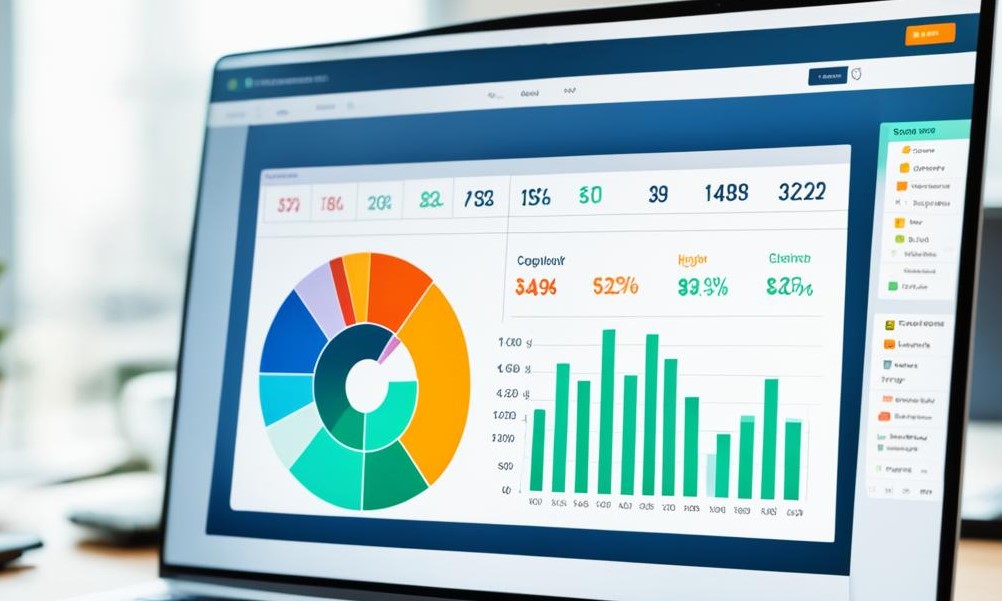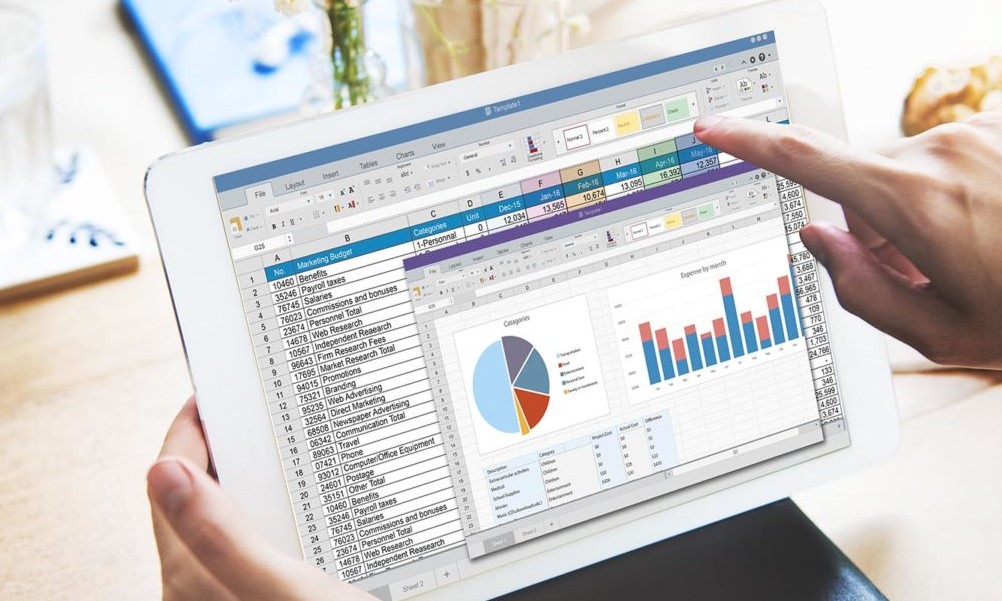Best Financial Software Solutions 2024: Features, Benefits, and Detailed Buying Guide
Begin with an engaging overview, explaining the relevance of financial software in today’s world. Highlight the essential role it plays in helping businesses and individuals manage their finances efficiently. Emphasize how financial software can streamline complex financial tasks, reduce human error, and provide insights for better decision-making.
Understanding Financial Software

Financial software is a tool designed to help individuals and businesses manage their finances efficiently by automating and organizing various financial tasks. It centralizes key functions like accounting, budgeting, expense tracking, invoicing, and reporting, reducing the need for manual calculations and improving accuracy. For businesses, financial software provides real-time insights, allowing leaders to make informed decisions and plan strategically.
It often integrates with other systems, such as CRM or payroll software, to create a seamless flow of data. Many financial software options offer cloud-based access, enabling users to manage finances from anywhere, which is particularly beneficial in today’s remote work environments. Whether used by small startups or large enterprises, financial software simplifies complex tasks, enhances productivity, and supports better financial management across various industries.
Types of Financial Software

Financial software encompasses various tools designed to streamline financial management processes for businesses and individuals. Here are some of the primary types of financial software commonly used today:
1. Accounting Software
Accounting software is essential for managing finances by recording and tracking transactions, managing accounts, and generating financial statements. Popular options like QuickBooks and Xero help businesses automate invoicing, monitor expenses, and prepare tax documents. These tools can be highly beneficial for small to medium-sized businesses that require accurate, up-to-date financial information for decision-making.
2. Budgeting and Forecasting Software
Budgeting and forecasting software assist users in planning future income and expenses, enabling both individuals and businesses to maintain control over their finances. These tools analyze historical financial data and predict future financial trends. For businesses, they aid in setting realistic financial goals and ensuring they have the resources needed to achieve them. Examples include tools like Adaptive Insights, which is commonly used for corporate financial planning.
3. Payroll Software
Payroll software automates employee payment processes, ensuring timely and accurate wage distribution while adhering to tax laws. This type of software calculates salaries, deducts necessary taxes, and manages employee benefits. Examples include Gusto and ADP, which simplify payroll management for small and large companies, helping them avoid errors and maintain compliance.
4. Billing and Invoicing Software
Billing and invoicing software is ideal for businesses that need to generate and track invoices regularly. It simplifies the process of creating professional invoices, tracking payments, and managing customer information. Tools like FreshBooks and Zoho Invoice help businesses maintain organized records, improve cash flow, and provide clients with timely billing statements.
5. Investment and Portfolio Management Software
Investment and portfolio management software caters to individuals and financial professionals who manage investments. It helps users track and analyze assets, manage portfolios, and monitor financial market trends. Personal Capital and E*TRADE, for example, offer tools for tracking investment performance and making data-driven investment decisions.
6. Tax Preparation Software
Tax preparation software assists individuals and businesses in preparing and filing tax returns. By automating tax calculations and organizing financial data, these tools help users comply with tax laws and maximize deductions. Popular options include TurboTax and H&R Block, both of which simplify the tax filing process and help avoid potential errors.
How Financial Software Works

Explain the inner workings of financial software, emphasizing how it automates financial processes and provides tools to manage different aspects of finances. Break down some key functionalities and the structure:
- Accounting Management – Financial software typically offers automated accounting features like bookkeeping, ledger management, and financial reporting. These tools reduce the need for manual entry and allow users to stay organized with minimal effort.
- Expense and Income Tracking – This software tracks all expenses and income streams, providing a clear picture of financial inflows and outflows. Users can categorize expenses and set budgets for better financial control.
- Invoicing and Payments – Many financial software programs include invoicing capabilities that allow businesses to generate, send, and track invoices, which simplifies billing and ensures timely payments.
- Reporting and Analytics – Financial software typically includes dashboards and reports that help users visualize their financial data. By displaying trends and generating predictive analytics, these tools aid in strategic planning.
Key Benefits of Using Financial Software

Enhanced Financial Management and Accuracy
- Centralized Financial Data: All financial information is stored in one place, ensuring that users can easily access and manage data without needing multiple systems. This streamlined access reduces duplication and data inconsistency.
- Automated Calculations: Automation minimizes human errors, especially in routine calculations, reducing discrepancies in financial records.
- Time Efficiency: By automating repetitive tasks like invoice generation and payment tracking, financial software frees up time, allowing users to focus on strategic tasks rather than tedious data entry.
Improved Financial Insights and Strategic Decision-Making
- Powerful Data Analysis: With data analysis tools embedded within the software, users gain insight into spending patterns, revenue trends, and profit margins. Visual tools like graphs and charts make it easier to understand financial health.
- Enhanced Forecasting: Financial software often includes budgeting and forecasting tools, helping users to predict future trends and prepare accordingly. Accurate forecasts can lead to better financial planning and resource allocation.
- Real-Time Updates: Most financial software today operates in real time, meaning that users get instant insights into their financial standing, which supports timely and informed decision-making.
Top Financial Software Solutions for 2024
QuickBooks Online
QuickBooks Online is one of the most widely used financial software programs, particularly popular among small to medium-sized businesses. Its cloud-based functionality enables users to access their accounts from anywhere, making it ideal for remote and hybrid work environments.
- Features: QuickBooks offers invoicing, expense tracking, real-time reporting, payroll management, and even tax filing assistance, making it a comprehensive financial tool.
- Pros:
- User-friendly interface, accessible to non-financial experts.
- Extensive integration options with other software like PayPal, Shopify, and CRM platforms.
- Available on both desktop and mobile platforms.
- Cons:
- The higher cost of advanced features can be prohibitive for very small businesses.
- Limited customizations for specific industry needs.
- Price: Starts at $25 per month.
- Use Case: QuickBooks Online suits small business owners needing a complete solution to handle invoicing, payroll, and basic financial reporting.
- Where to Buy: Available on QuickBooks Online.
Xero
Xero is a versatile financial software solution, ideal for businesses of all sizes, but particularly well-suited for those that need a strong invoicing, expense tracking, and reconciliation tool. With powerful multi-currency support, Xero is popular among businesses with international transactions.
- Features: Xero offers bank reconciliation, expense tracking, customizable reporting, and project management.
- Pros:
- Excellent mobile app and highly customizable reports.
- Supports over 160 currencies, making it ideal for businesses with international dealings.
- Cons:
- Slightly challenging learning curve for new users.
- Some features only available on higher-tier plans.
- Price: Starts at $13 per month.
- Use Case: Xero is well-suited for businesses with a global presence, inventory needs, or those managing multiple projects.
- Where to Buy: Available at Xero.
FreshBooks
FreshBooks is known for its focus on invoicing, making it a popular choice among freelancers, contractors, and service-based businesses. With an intuitive interface and excellent time-tracking features, FreshBooks simplifies invoicing and payment collection.
- Features: Time tracking, invoicing, expense management, and project management are some of its core features.
- Pros:
- Simple invoicing process, well-suited for non-financial professionals.
- Offers strong customer support and seamless integrations.
- Cons:
- Limited reporting features, especially compared to larger accounting software.
- May not meet the needs of businesses with complex financial requirements.
- Price: Starting at $15 per month.
- Use Case: Ideal for freelancers and small service-based businesses seeking an easy invoicing and expense tracking tool.
- Where to Buy: Available via the FreshBooks.
Sage 50cloud
Sage 50cloud offers advanced accounting capabilities and combines the reliability of desktop software with cloud functionality. Sage is a powerful tool for mid-sized to large businesses that require in-depth inventory management and job costing.
- Features: Advanced inventory management, job costing, payroll, and extensive financial reporting.
- Pros:
- Comprehensive feature set ideal for businesses with complex accounting needs.
- Robust data security and privacy settings.
- Cons:
- Higher cost than other solutions and limited mobile functionality.
- Price: Begins at $340 per year.
- Use Case: Best for businesses with more complex accounting needs, especially those requiring detailed inventory management.
- Where to Buy: Available through Sage.
Wave
Wave is a unique financial software solution because it is free for core accounting and invoicing. Targeted at small businesses, Wave provides basic yet effective accounting tools, which makes it ideal for startups and budget-conscious users.
- Features: Invoicing, receipt scanning, accounting, and basic payroll management.
- Pros:
- Free core features, accessible to small business owners with limited budgets.
- User-friendly and easy to set up.
- Cons:
- Lacks advanced features, and customer support options are limited.
- Price: Free with optional pay-as-you-go features.
- Use Case: Best suited for small businesses or self-employed individuals on a limited budget.
- Where to Buy: Available at Wave.
Choosing the Right Financial Software Based on Use Cases
- Small Business Owners: For small business owners who need a comprehensive tool for managing finances, QuickBooks Online is an ideal choice due to its extensive features and ease of use.
- Freelancers and Independent Contractors: FreshBooks is specifically tailored for freelancers who need simple invoicing and expense tracking.
- International Businesses: Xero’s multi-currency support and customizable reports make it perfect for businesses with international transactions.
- Medium to Large Businesses with Inventory: Sage 50cloud is best suited for businesses with complex financial requirements, such as detailed inventory and job costing.
- Budget-Conscious or Self-Employed Individuals: Wave offers a cost-effective solution for basic accounting, making it ideal for small businesses or startups.
Key Consideration of Financial Software
Choosing the right financial software is crucial for businesses looking to streamline operations, enhance accuracy, and improve financial decision-making. Here are several key considerations to keep in mind when selecting the best solution:
1. Features and Functionality
Financial software varies widely in terms of features, so it’s essential to select a solution that aligns with your business needs. Basic features, such as invoicing, expense tracking, budgeting, and financial reporting, are often included in many software options. However, advanced functions like payroll management, tax preparation, multi-currency support, and inventory tracking can be beneficial depending on your business type. For example, a small business may need simple invoicing and budgeting tools, while a larger enterprise may require more complex accounting and tax features.
2. Scalability
Scalability is another critical factor, especially for growing businesses. Some financial software options are better suited for small businesses or freelancers, offering streamlined functionality without complex integrations. Larger companies, however, may benefit from software that can scale up with advanced features as they grow. Choose a solution that can adapt to your needs without requiring frequent changes or upgrades to new software as your business expands.
3. Ease of Use
The usability of financial software can significantly impact productivity. Look for software that has an intuitive interface and is easy for employees to navigate without extensive training. An accessible interface reduces the learning curve, saving time and minimizing errors. Additionally, consider whether the software provides mobile access, allowing financial management on the go, which can be particularly useful for small business owners or freelancers.
4. Security and Compliance
Handling financial data comes with a responsibility to protect it. Choose software that offers robust security features, such as data encryption, multi-factor authentication, and regular data backups. Compliance with financial regulations, like GDPR for data privacy or SOC 2 certification for security, is also essential. Ensuring that the software meets security and compliance standards can help protect sensitive data and build trust with clients.
5. Cost and Pricing Structure
Financial software pricing can vary significantly. Subscription-based pricing, often monthly or annually, is common, but some solutions charge based on user access or feature tiers. Weighing the cost against the features offered and the potential return on investment is essential. Free versions, like Wave, may be suitable for startups with limited needs, while premium options like QuickBooks or Xero provide more comprehensive features at a higher price.
Where and How to Buy Financial Software
Explain the best ways to purchase financial software:
- Vendor Websites: Purchasing directly from the vendor ensures authenticity and often includes trial periods. For example:
- QuickBooks Online
- Xero
- FreshBooks
- Subscription Models: Most financial software offers monthly or annual subscription plans with various tier levels.
- Affiliate Links and Promotions: Highlight the benefits of finding affiliate links or promotional offers for discounts.
FAQs
1. What can financial software do for my business?
Financial software can streamline your financial management processes, offering tools like accounting, invoicing, expense tracking, and financial reporting. This helps reduce errors, saves time, and provides insights for more strategic decision-making.
2. How does financial software help in reducing financial errors?
By automating routine financial tasks and calculations, financial software reduces the chances of human error. It ensures that data entry is consistent and accurate, minimizing discrepancies in financial reports.
3. Is financial software worth the investment for small businesses?
Yes, financial software can be particularly beneficial for small businesses. It helps maintain organized financial records, improves cash flow management, and simplifies the invoicing and expense tracking process, which is essential for growing businesses.